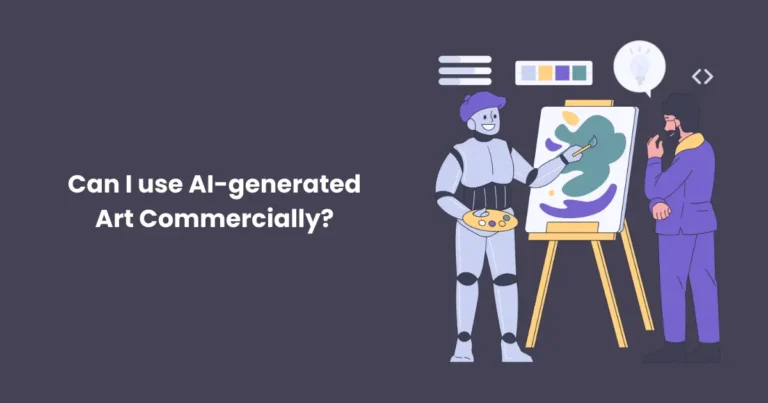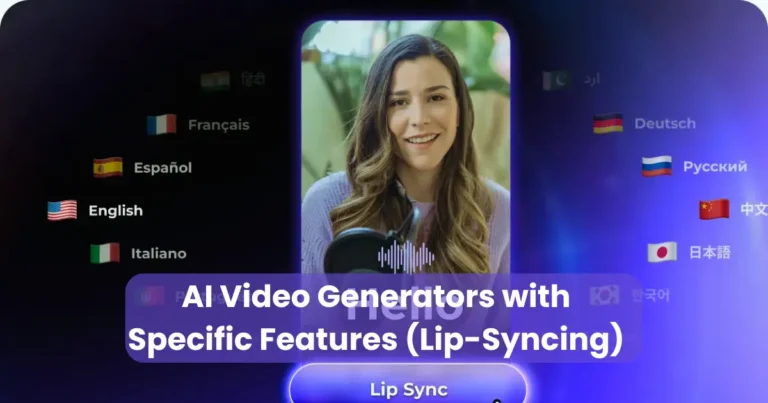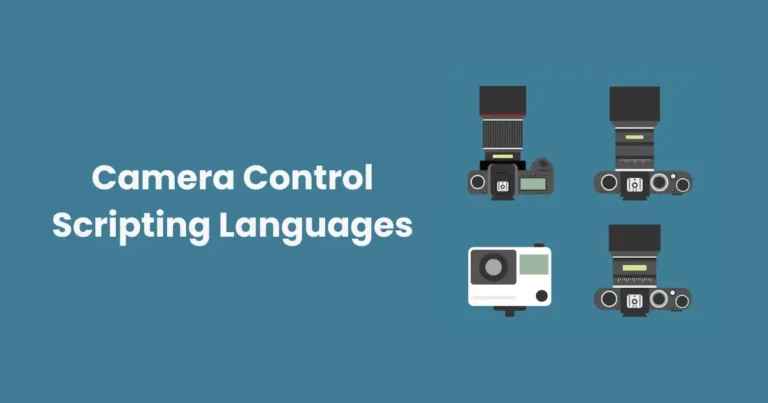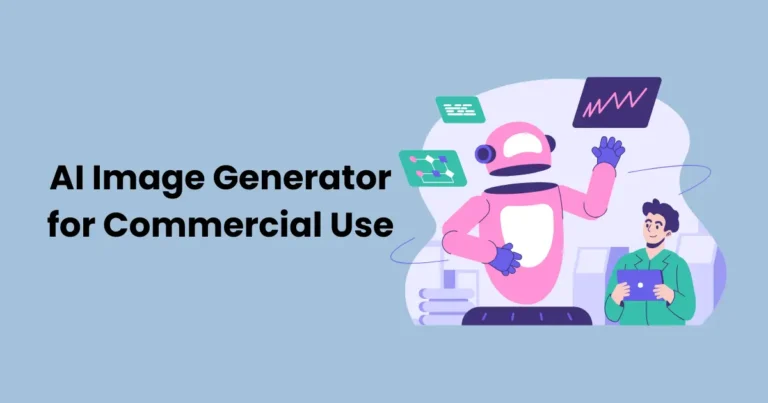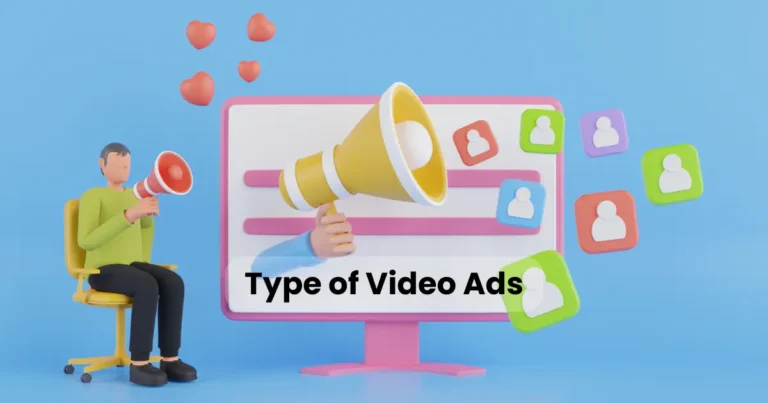Will AI Replace PPC jobs? | What You Need to Know in 2025
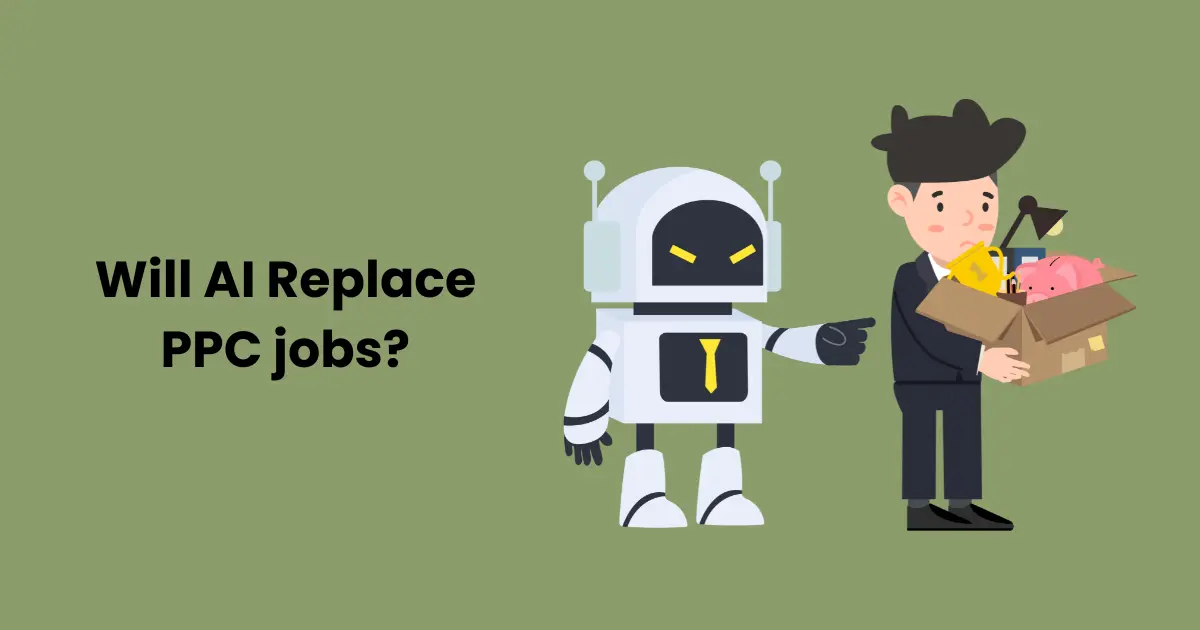
Contents
- 1 What is PPC and How Does it Work?
- 2 Understanding AI’s Role in Digital Marketing: Will AI Replace Marketing?
- 3 Benefits of AI in PPC Campaigns
- 4 Skills PPC Specialists Bring to the Table
- 4.1 1. Strategic Planning
- 4.2 2. Keyword Research and Selection
- 4.3 3. Creative Ad Copywriting
- 4.4 4. Competitor Analysis
- 4.5 5. Campaign Customization
- 4.6 6. Data Interpretation and Insights
- 4.7 7. Relationship Building
- 4.8 8. Crisis Management
- 4.9 9. Testing and Experimentation
- 4.10 10. Staying Updated on Industry Trends
- 5 Will AI Replace PPC Jobs? Analyzing the Future
- 6 How PPC Professionals Can Stay Relevant
- 6.1 1. Embrace AI as a Tool, Not a Threat
- 6.2 2. Focus on Strategic Thinking
- 6.3 3. Master Data Analysis and Insights
- 6.4 4. Hone Creativity and Copywriting Skills
- 6.5 5. Stay Updated with Industry Trends
- 6.6 6. Build Expertise in Niche Markets
- 6.7 7. Strengthen Client Relationships
- 6.8 8. Invest in Continuous Learning
- 6.9 9. Adapt to New Roles and Responsibilities
- 6.10 Conclusion
The rapid evolution of artificial intelligence (AI) has reshaped the landscape of digital marketing, introducing powerful tools that streamline various tasks. Among these advancements, AI’s integration into Pay-Per-Click (PPC) advertising has sparked significant interest. As AI demonstrates its ability to automate campaign management, and optimize performance, many wonder, will AI replace PPC jobs? While these technologies undoubtedly enhance efficiency and accuracy, the unique strategic and creative input provided by human PPC professionals remains a critical component of successful campaigns. Understanding the balance between AI capabilities and human expertise is essential for navigating this evolving field.
What is PPC and How Does it Work?
Pay-Per-Click (PPC) advertising is a digital marketing model where advertisers pay a fee each time their ad is clicked. It is an effective way to drive traffic to websites, generate leads, and boost sales by targeting specific audiences through search engines, social media platforms, or other digital spaces.

Key Components of PPC
- Keywords: Advertisers bid on keywords relevant to their products or services. When users search for these terms, ads appear at the top or alongside search engine results.
- Ad Auction: PPC campaigns involve a bidding system where advertisers compete for ad placement based on their bid amount and ad quality.
- Ad Quality Score: Platforms like Google Ads evaluate the relevance and quality of an ad, determining its placement and cost-per-click (CPC).
- Targeting: PPC campaigns allow detailed targeting based on demographics, location, behavior, and interests, ensuring ads reach the right audience.
How PPC Works
- Campaign Creation: Advertisers create campaigns with specific goals, such as increasing website traffic, promoting a product, or boosting conversions.
- Ad Placement: Ads are displayed on search engine result pages (SERPs), social media feeds, or websites, depending on the platform and campaign type.
- Performance Tracking: Metrics like click-through rate (CTR), conversion rate, and return on ad spend (ROAS) are monitored to assess effectiveness.
PPC provides a measurable, targeted, and cost-effective approach to digital advertising. However, managing campaigns requires expertise in keyword research, audience analysis, and performance optimization to maximize ROI. While AI tools assist with these tasks, the human touch remains indispensable for crafting compelling strategies and ensuring alignment with business goals.
Understanding AI’s Role in Digital Marketing: Will AI Replace Marketing?
Before answering the question will AI replace PPC jobs? we nee d to understand that how Artificial Intelligence (AI) is transforming digital marketing by enabling faster, smarter, and more personalized campaign strategies. From predictive analytics to customer segmentation, AI is revolutionizing how businesses interact with their audiences and optimize their campaigns.

How AI Enhances Digital Marketing
- Data Analysis and Insights:
AI processes vast amounts of data to identify patterns and trends, allowing marketers to make data-driven decisions. For instance, AI tools analyze user behavior to predict purchasing habits, improving campaign targeting. - Personalization:
By leveraging AI, businesses can deliver tailored experiences to individual customers. Dynamic ad content, personalized recommendations, and custom email campaigns are a few examples of how AI refines marketing efforts. - Automation:
AI automates repetitive tasks like scheduling posts, generating reports, and bid management in PPC campaigns. This allows marketers to focus on strategy and creativity rather than manual operations. - Predictive Analytics:
Predictive AI models forecast future customer behavior and market trends. This helps in anticipating needs, optimizing budgets, and creating proactive marketing strategies.
Examples of AI in Digital Marketing
- Chatbots: Enhance customer service by providing instant responses and support.
- Content Creation: AI tools assist in generating blog posts, product descriptions, and ad copy.
- Programmatic Advertising: Automates ad buying and placement to target specific audiences in real-time.
AI’s ability to analyze, automate, and personalize has positioned it as a cornerstone of modern digital marketing. However, while these tools significantly enhance efficiency and performance, the strategic thinking and creativity brought by human marketers remain vital for delivering impactful campaigns.
Benefits of AI in PPC Campaigns
Instead of knowing the answer to the question that will AI replace PPC jobs? we need to know about benefits of AI in PPC campaigns by exploring the facts that integration of artificial intelligence (AI) in Pay-Per-Click (PPC) advertising has revolutionized how campaigns are managed and optimized. By leveraging AI tools, advertisers can achieve higher efficiency, better targeting, and improved outcomes. Here are the key benefits of AI in PPC campaigns:

1. Enhanced Campaign Optimization
AI analyzes real-time data to adjust bids, keywords, and ad placements automatically. This ensures campaigns achieve maximum performance by targeting the most valuable audiences at optimal times.
2. Improved Targeting Accuracy
With advanced algorithms, AI identifies specific audience segments based on demographics, behavior, and interests. This precision targeting helps deliver ads to the right people, increasing click-through rates (CTR) and conversions.
3. Automation of Repetitive Tasks
AI automates routine tasks like bid adjustments, keyword research, and ad scheduling. This saves time for marketers, allowing them to focus on strategy and creative aspects of campaign management.
4. Real-Time Performance Monitoring
AI tools continuously monitor campaign metrics, providing instant insights and recommendations. This real-time analysis enables quick adjustments to ensure the campaign remains on track.
5. Budget Optimization
AI helps maximize return on investment (ROI) by efficiently allocating budgets across campaigns and channels. It prioritizes high-performing ads and minimizes spending on less effective ones.
6. Predictive Analytics
AI predicts future trends and audience behaviors, helping advertisers anticipate changes and adjust strategies proactively. This capability enhances long-term campaign success.
7. Dynamic Ad Creation
Some AI tools can create dynamic ads that adapt to different audiences and contexts. By personalizing ad content, these tools improve engagement and relevance.
8. Reduced Human Error
AI eliminates errors that can occur during manual campaign management, such as incorrect bid settings or targeting issues. This ensures campaigns run smoothly and efficiently.
While AI brings numerous advantages to PPC campaigns, it is not a replacement for human expertise. Combining AI’s analytical power with the creativity and strategic thinking of PPC professionals results in campaigns that are both effective and impactful.
Skills PPC Specialists Bring to the Table
While artificial intelligence (AI) offers valuable automation and analytical capabilities, PPC specialists bring unique skills that remain critical for the success of Pay-Per-Click (PPC) campaigns. These professionals combine technical knowledge, strategic thinking, and creative expertise to deliver results that machines alone cannot achieve.

1. Strategic Planning
PPC specialists design comprehensive strategies tailored to a business’s goals, target audience, and budget. Their ability to align campaign objectives with broader marketing plans ensures optimal outcomes.
2. Keyword Research and Selection
Although AI tools assist with keyword suggestions, PPC specialists excel in understanding nuances like search intent, seasonal trends, and industry-specific terminology, which are crucial for selecting high-performing keywords.
3. Creative Ad Copywriting
Writing compelling and persuasive ad copy requires human creativity and an understanding of audience psychology. PPC specialists craft messages that resonate emotionally while aligning with the brand voice.
4. Competitor Analysis
PPC professionals analyze competitors’ strategies, identifying opportunities to outperform them. This includes studying ad placements, keywords, and audience targeting to gain a competitive edge.
5. Campaign Customization
Specialists tailor campaigns to specific business needs, considering factors such as geography, demographics, and market conditions. This customization ensures ads are highly relevant and impactful.
6. Data Interpretation and Insights
While AI provides data, interpreting it to uncover actionable insights is a skill that PPC specialists excel at. They identify trends, diagnose issues, and recommend improvements that align with business objectives.
7. Relationship Building
PPC specialists work closely with clients, understanding their unique goals and providing personalized advice. This human connection fosters trust and ensures campaigns align with client expectations.
8. Crisis Management
When campaigns face unexpected challenges, such as underperformance or policy violations, specialists can swiftly intervene and implement corrective measures, minimizing potential losses.
9. Testing and Experimentation
Specialists use A/B testing and other methods to experiment with ad variations, targeting options, and bidding strategies. These iterative improvements often yield results that automated systems cannot achieve on their own.
10. Staying Updated on Industry Trends
The digital marketing landscape is constantly evolving. PPC professionals stay informed about algorithm updates, policy changes, and new trends, ensuring campaigns remain effective in a dynamic environment.
While AI enhances efficiency, PPC specialists add a layer of creativity, strategy, and human judgment that ensures campaigns not only perform well but also achieve sustainable growth. Their expertise complements AI, making them indispensable in the evolving digital marketing ecosystem.
Will AI Replace PPC Jobs? Analyzing the Future
The question “Will AI replace PPC jobs?” has sparked intense debate as artificial intelligence continues to transform the digital marketing landscape. While AI offers unprecedented automation and efficiency, it cannot entirely replace the human skills and judgment that PPC professionals bring to the table. Here’s an analysis of the future of PPC jobs in the age of AI.

AI’s Capabilities in PPC
AI excels at automating repetitive tasks, such as:
- Bid management and budget allocation.
- Performance monitoring and reporting.
- Real-time adjustments to keywords and ad placements.
These capabilities reduce workload and improve campaign efficiency, making AI an invaluable tool for PPC management.
Limitations of AI in PPC
Despite its strengths, AI has several limitations:
- Lack of Creativity: AI can generate suggestions but struggles with creating engaging, emotionally resonant ad copy.
- Contextual Understanding: AI may misinterpret nuanced audience behaviors or industry-specific trends that require human insight.
- Strategic Thinking: PPC campaigns often need a broader strategy that aligns with business goals, a task AI is not equipped to handle independently.
The Human-AI Collaboration
Rather than replacing PPC jobs, AI is more likely to reshape them. The future lies in human-AI collaboration, where PPC specialists use AI tools to enhance their efficiency and decision-making. For example:
- AI handles data-heavy tasks like analysis and reporting.
- Human professionals focus on creative elements, strategic planning, and relationship management.
Why PPC Jobs Will Evolve, Not Disappear
- Customization Needs: Every business has unique needs that require tailored solutions, something AI alone cannot achieve.
- Ethical Oversight: Ensuring ad compliance and avoiding controversial content demands human judgment.
- Problem-Solving: When campaigns underperform, human expertise is essential for diagnosing issues and implementing solutions.
- Innovation: PPC professionals experiment with new strategies and ideas, driving innovation in ways AI cannot replicate.
Future Job Opportunities in PPC
As AI becomes more integrated, new roles may emerge in the PPC ecosystem, such as:
- AI Tool Specialists: Managing and optimizing AI-powered platforms.
- Strategy Consultants: Combining AI insights with creative strategy development.
- Data Analysts: Interpreting AI-generated reports and refining campaign objectives.
The question will AI replace PPC jobs? can be reframed as: How will AI reshape PPC roles? AI will likely enhance, not eliminate, the need for skilled PPC professionals. By automating routine tasks, AI frees marketers to focus on higher-value work like strategy, creativity, and innovation. Ultimately, the combination of human expertise and AI capabilities will define the future of PPC advertising.
How PPC Professionals Can Stay Relevant
As artificial intelligence (AI) continues to shape the digital marketing industry, PPC professionals must adapt to remain essential in the evolving landscape. By leveraging their unique skills and integrating AI tools into their workflow, they can maintain their value and ensure long-term career growth. Here’s how PPC professionals can stay relevant in the age of AI:

1. Embrace AI as a Tool, Not a Threat
Rather than viewing AI as competition, PPC specialists should use AI-powered platforms to enhance their campaigns. Familiarity with tools like Google Ads’ Smart Bidding or programmatic advertising platforms can improve efficiency and results.
2. Focus on Strategic Thinking
AI excels at automation but lacks the ability to develop long-term strategies. PPC professionals should prioritize:
- Designing multi-channel campaigns.
- Aligning PPC efforts with broader business goals.
- Exploring creative approaches to reach target audiences.
3. Master Data Analysis and Insights
While AI can analyze data, interpreting it in a business context is a skill that professionals can sharpen. This includes:
- Spotting patterns and trends that align with client objectives.
- Turning raw data into actionable insights.
- Making informed decisions based on campaign performance metrics.
4. Hone Creativity and Copywriting Skills
AI tools may assist in generating ideas, but writing compelling, audience-specific ad copy is an irreplaceable human skill. PPC specialists should focus on creating:
- Emotionally resonant ads.
- Messaging that aligns with brand identity.
- Content that stands out in competitive markets.
5. Stay Updated with Industry Trends
The digital marketing landscape changes rapidly. PPC professionals should regularly:
- Attend webinars, workshops, and conferences.
- Follow updates to advertising platforms like Google Ads and Microsoft Ads.
- Learn about new AI tools and trends in consumer behavior.
6. Build Expertise in Niche Markets
Specializing in specific industries or audience segments can make PPC professionals indispensable. By becoming an expert in areas like e-commerce, healthcare, or B2B advertising, they can offer tailored solutions that AI cannot replicate.
7. Strengthen Client Relationships
Building strong, trust-based relationships with clients is a key differentiator. PPC specialists can:
- Provide personalized consultations and updates.
- Understand client needs and adapt strategies accordingly.
- Offer human support and reassurance, especially during campaign challenges.
8. Invest in Continuous Learning
To stay ahead, PPC professionals should invest in skills that complement AI tools, such as:
- Advanced data analytics and visualization.
- Coding basics for working with AI platforms.
- Experimenting with emerging advertising formats like voice search and video ads.
9. Adapt to New Roles and Responsibilities
AI may shift traditional PPC responsibilities, but it will also create new opportunities. PPC professionals can explore roles like:
- AI platform management and training.
- Campaign optimization consulting.
- Ethical oversight for AI-driven advertising.
To stay relevant, PPC professionals must evolve alongside AI by embracing technology, sharpening their creative and strategic skills, and focusing on roles that require human ingenuity. By adapting to these changes, they can position themselves as indispensable players in the future of PPC advertising.
Conclusion
The integration of AI into PPC advertising has undeniably transformed how campaigns are managed, offering increased efficiency, automation, and precision. However, the question “Will AI replace PPC jobs?” reveals a more nuanced reality. While AI can handle repetitive tasks and analyze large volumes of data, it cannot replicate the strategic thinking, creativity, and human judgment that PPC professionals bring to the table. Instead of viewing AI as a threat, marketers should see it as a powerful tool to complement their expertise, enabling them to focus on higher-value tasks like crafting innovative strategies, personalized messaging, and fostering client relationships.
As the digital marketing landscape continues to evolve, the role of PPC professionals will shift rather than disappear. By embracing AI-driven tools, staying updated on industry trends, and enhancing skills that machines cannot replicate, PPC specialists can secure their place in the future. Human ingenuity combined with AI’s efficiency will create a more dynamic and effective approach to PPC advertising, ensuring that both professionals and businesses benefit from this technological evolution. The future of PPC is not about replacement but about collaboration between human expertise and artificial intelligence.

